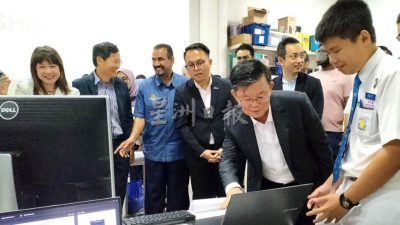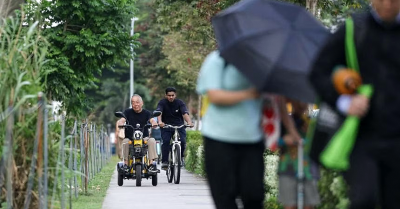ChatGPT, the artificial intelligence chatbot taking the English-speaking world by storm, is being called by many as a mind-blowing “game changer.”
For now, East Asian countries, which use their own search engines and platforms different from the rest of the world, are spared by the immediate impact, although it won’t be long before AI is trained to get information from them as well, according to Jieun Kiaer, a professor of Korean linguistics at the University of Oxford.
AI bots function well in English, but have limitations in other languages, particularly non-European languages, Kiaer said in a video call with The Korea Herald.
Also, ChatGPT is banned in China, so there’s no information being fed to the chatbot from the country of 1.4 billion, she pointed out.
The professor explained that chatbots like ChatGPT lack linguistic diversity, pragmatic versatility and it takes huge quantities of money, time and energy to train AI bots to process language as the human brain can.
AI can likely acquire an understanding of pragmatics, a branch of linguistics that studies the ways in which language is used in context to convey meaning such as irony, metaphor and sarcasm, but for now AI is pragmatically limited, the professor said.
Since Asian languages in particular have very complex pragmatics based on interpersonal relations and societal hierarchies, AI translators have trouble using those languages, giving human interpreters of these languages some time before the bots catch up, the linguist said.

In the field of language education, the rise of chatbots will bring about major changes, she stressed.
In the language acquisition stage of young children, human interaction is the most important factor, as proposed by Noam Chomsky, “the father of modern linguistics,” but ChatGPT can definitely help those learning second and third languages.
“Great news for Koreans spending so much time and money on English education. Although human interaction matters most for young children, we can look for a hybrid model of using AI for learning languages,” Kiaer said.
To “create an ecology in which we can coexist with AI in a way that is beneficial for all … we must find the right division of labor between AI and ourselves.”
In education, this means separating the roles of knowledge memorization and knowledge application; the very parameters of education must be reset to reflect this, the professor wrote in her e-book essay “Alongside AI: A Linguist’s Perspective on the Recent Release of ChatGPT” that she wrote in collaboration with ChatGPT.
“We should really revolutionize assessments. AI is better than us in finding facts, summarizing and analyzing facts … We need tailor-made assessments, instead of standardized tests, and must focus on teaching students how to use knowledge and data to gain insight,” she said.
“We need to teach how to question rather than how to answer the conventional fact-checking or basic analytic questions.”
Children need to learn skills of critical thinking, analysis and real-world application from an earlier age, she added.
“Everyone (in academia) hated Google when it first came out. But now most schools let students use Wikipedia,” the professor said.
“Being able to use knowledge stored in online spaces is the only real skill that will be needed in the future, and curriculums need to begin adapting to that reality now.”
ADVERTISEMENT
ADVERTISEMENT








































